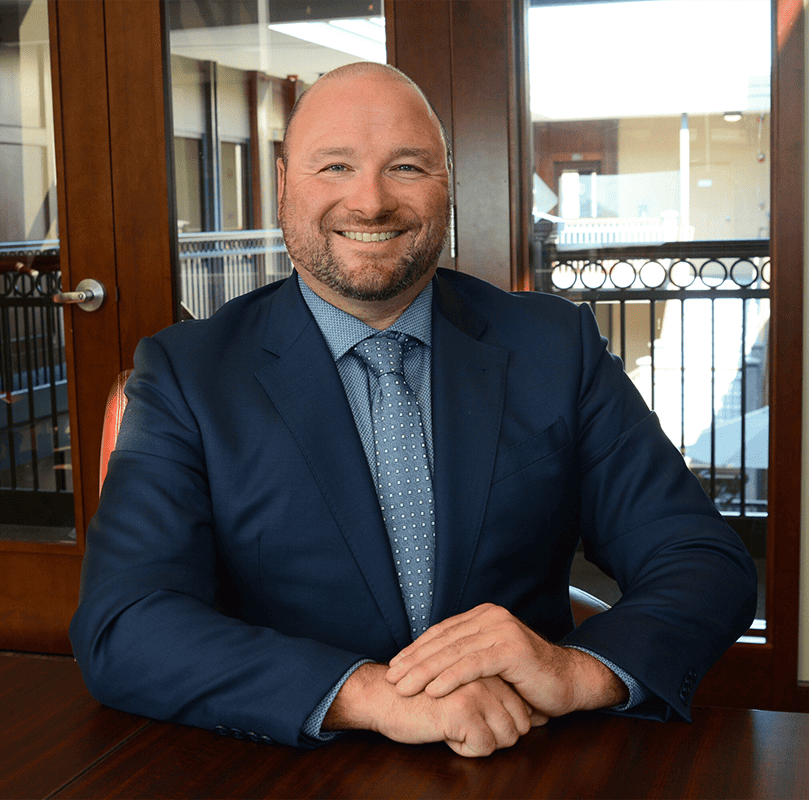Did you know that nearly 50% of all marriages in the United States end in divorce? Even pastors, who are often seen as pillars of strength and wisdom within their communities, are not immune to this staggering statistic.
As a family law attorney, I have had the unique opportunity to work with numerous clients from various walks of life, including several divorced pastors. These individuals face unique challenges when it comes to overcoming feelings of shame and guilt associated with the dissolution of their marriages.
Let’s face it – as a pastor, you’re expected to be a role model for your congregation. You’ve likely spent years dedicating yourself to providing guidance on spiritual and moral issues for others. When your own marriage ends, it can feel like a personal failure that shakes the foundations of your identity and credibility.
But don’t despair! With the right mindset and tools at your disposal, you can move past these difficult emotions and continue to thrive in both your personal life and ministry. In this article, we’ll explore practical ways for divorced pastors to overcome shame and guilt while reclaiming their sense of self-worth and purpose.
Impact Of Divorce On Pastors
Divorced pastors, like any individuals going through a marital dissolution, may face considerable emotional turmoil.
The impact of divorce on pastoral ministry can be significant, as these spiritual leaders often grapple with feelings of shame, guilt, and self-doubt in their personal lives while still being expected to provide guidance and support to their congregations.
It’s essential for divorced pastors to acknowledge the emotional weight they carry and seek ways to overcome these negative emotions that are potentially hindering them from effectively performing their duties.
Recognizing the sources of shame and guilt is an important starting point in this journey towards healing and restoration within both their personal lives and ministerial roles.
Next, we’ll delve into these common sources of emotional distress that many divorced pastors face.

Sources Of Shame And Guilt
As a family law attorney, I understand that divorce can be a very difficult process for pastors, and it can often lead to feelings of shame and guilt. Mistakes can be made, and expectations can go unmet – it’s important to understand the sources of these feelings and how to work through them.
Pastoral Mistakes
It’s heart-wrenching to see our beloved divorced pastors struggling with shame and guilt over their pastoral mistakes.
We all know that they’re human too, but the expectations placed upon them can be overwhelming, leading to feelings of inadequacy and regret.
As a family law attorney, I’ve seen firsthand how these emotions can not only affect the pastor’s personal life but also their ministry.
It’s crucial for us to acknowledge and address these sources of shame and guilt, in order for our pastors to regain confidence and continue serving their congregations effectively.
By understanding their struggles and providing support, we can help these dedicated servants overcome the negative impact of their past mistakes without undermining their authority or effectiveness in leading others towards spiritual growth.
Unmet Expectations
One major source of shame and guilt for divorced pastors is unmet expectations.
It’s no secret that pastors are held to a higher standard, both by themselves and their congregations.
They’re expected to be spiritual leaders, counselors, teachers, and so much more.
When they fall short in any area, especially in their personal lives, it can feel like they’ve failed not just themselves but also their congregation and even God.
As a family law attorney who has worked with numerous divorced pastors, I’ve seen the devastating effects of these unmet expectations firsthand.
However, it’s vital for us to remember that our pastors are human beings with flaws and weaknesses just like everyone else.
By acknowledging this fact and offering support and understanding when they face challenges or make mistakes, we can help them navigate these difficult times more effectively while also fostering an environment where growth and learning are encouraged rather than stifled by shame and guilt.
Understanding The Emotional Pain
Picture this: a divorced pastor, drowning in an ocean of guilt and shame, weighed down by the heavy chains of emotional pain. Sounds dramatic, doesn’t it?
But for many divorced pastors, this is their reality as they struggle with overcoming the strong feelings of guilt and shame that often accompany their new status.
Now that we have identified the sources of shame and guilt for divorced pastors, it is essential to understand the emotional pain that comes along with it.
Emotional pain can be an overwhelming burden that not only affects one’s mental health but also seeps into every aspect of their personal and professional life.
As a family law attorney who has witnessed countless clients go through this process, I know firsthand how important it is to address these emotions head-on in order to begin healing.
With a firm grasp on the root causes and emotional impact of shame and guilt, we can now move forward to finding healthy ways to cope with these powerful emotions.
Finding Healthy Ways To Cope
If you are a divorced pastor, it is important to start by reclaiming your identity. It’s also essential to build a support network of family, friends, and professionals to help you cope and move forward.
Reclaiming Identity
You’ve got to understand, reclaiming your identity as a divorced pastor is absolutely crucial in moving forward and finding healthy ways to cope.
As a family law attorney, I’ve seen countless clients struggle with the guilt and shame associated with divorce, especially those in positions of spiritual leadership.
Remember, you’re not alone in this journey – there are many divorced pastors who have successfully reclaimed their identities and are now thriving.
It’s important to take time for self-reflection, rediscovering who you are outside of your marriage and pastoral role.
Surround yourself with supportive individuals who recognize that our identities are multifaceted and constantly evolving.
Embrace this opportunity for growth; after all, it’s through such trials that we often gain the most wisdom and strength.
Building A Support Network
As you embark on this journey of self-discovery and healing, it’s vital to surround yourself with a strong support network.
You’ll find that there are many other divorced pastors out there who have walked in your shoes and can provide invaluable guidance, encouragement, and understanding.
They say it takes a village to raise a child, but I believe it also takes a village to help us through life’s most challenging moments.
Your support network should include not only fellow pastors but also friends, family members, and possibly even professional counselors or therapists who can offer unbiased insight into your unique situation.
By leaning on the collective wisdom and experience of others, you’ll be better equipped to navigate the sometimes-turbulent waters of post-divorce life with grace and resilience.
Reclaiming Self-Respect
Divorced pastors often grapple with feelings of shame and guilt, which can be especially difficult to navigate given their positions as spiritual leaders. Overcoming these emotions is crucial in reclaiming self-respect and moving forward both personally and professionally.
One effective way to address these feelings is by acknowledging the shared human experience of imperfection and understanding that even pastors are not immune to life’s challenges. By recognizing that divorce does not define one’s worth or ability to lead, divorced pastors can begin to release the weight of shame and guilt they may be carrying.
This process requires a commitment to self-compassion, forgiveness, and personal growth. As this journey unfolds, it becomes easier for divorced pastors to regain their self-respect and continue serving their congregations with renewed confidence.
With a strong foundation of self-respect in place, seeking professional help will be an essential component in further healing and personal development.
Seeking Professional Help
As you continue to work on rebuilding your self-respect, it is essential to recognize that seeking professional help can be an invaluable resource in overcoming the lingering feelings of shame and guilt. Divorced pastors are not immune to these emotions, and addressing them head-on with the assistance of a qualified counselor or therapist can lead to significant breakthroughs.
Facing our demons may seem daunting, but it’s a necessary step towards healing and growth. Professional help can provide guidance in navigating the emotional rollercoaster that often accompanies divorce, especially for pastors who may feel additional pressure due to their role within the community.
A few ways therapists or counselors can support divorced pastors include:
- Providing a safe space for open and honest discussions about their emotions.
- Offering coping strategies for dealing with shame and guilt.
- Helping develop healthy boundaries in both personal and professional relationships.
- Encouraging self-care practices that promote mental and emotional well-being.
By seeking out professional help, divorced pastors can take charge of overcoming their feelings of shame and guilt. With tailored guidance from experts, they can gradually rebuild their confidence, allowing them to move forward with grace as they embrace a new chapter in life. This crucial step towards healing will not only benefit the divorced pastor personally but also enhance their ability to serve their community more effectively.
Next up on this journey is the importance of relying on faith and support systems as powerful tools for recovery.
Relying On Faith And Support Systems
It’s important for divorced pastors to rely on God and draw on their faith during difficult times. Finding support systems such as family, friends, and professional help can also be beneficial to help them cope. Lastly, it’s important for them to remember that God loves them and that there is no shame or guilt in their situation.
Relying On God
You know, it’s tough being a divorced pastor. But hey, who said life was going to be a piece of cake?
As divorced pastors, relying on God is an essential part of overcoming the feelings of guilt and shame that can accompany the difficult journey of divorce.
Rest assured, leaning into your faith will provide you with the necessary strength and guidance to navigate through these trying times. Remember that God is in control, even when it feels like everything around you is crumbling apart.
And let’s be honest here: wouldn’t you want the Creator of the universe in your corner? So go ahead, lean on Him, trust in His promises and watch as He helps you overcome those feelings of guilt and shame that have been holding you back!
Finding Support Systems
Now, let’s shift gears and talk about another crucial aspect of overcoming those challenges faced by divorced pastors: finding support systems.
You see, having a strong network of people who genuinely care about your well-being is vital in getting through this emotionally taxing period in your life.
Don’t be afraid to reach out to friends, family members, and even fellow clergy who can empathize with your situation and offer guidance or a listening ear.
After all, nobody should have to navigate the choppy waters of divorce alone – especially not when there are so many willing to lend their support!
So go ahead and take advantage of those available resources; you might be surprised at just how much easier it becomes to reclaim control over your life as a result.
Drawing On Faith
In addition to relying on support systems, divorced pastors should also consider drawing on faith to help them navigate this challenging time.
As spiritual leaders, your faith has likely guided you through difficult moments in the past, so why not turn to it for strength now?
By leaning into your beliefs and taking solace in your connection with a higher power, you can find the resilience and inner peace needed to overcome the obstacles that divorce presents.
Remember that you are not alone in this journey; countless others have faced similar challenges and emerged stronger because of their unwavering faith.
So let your spirituality be an anchor amidst the storm, and trust that brighter days lie ahead.
Building Resilience
To build resilience, it’s important to take care of yourself. Self-care can include activities like exercise, journaling, or getting enough sleep. Connecting with others is another important part of resilience. Consider joining a support group or finding a sympathetic friend to confide in. Lastly, be mindful of your triggers, and recognize when you need to take a break or take some time to yourself.
Self-Care
Imagine the crushing weight of guilt and shame that divorced pastors often feel as they struggle to reconcile their personal lives with their spiritual calling. Self-care becomes not just important, but absolutely essential in order for them to find balance and build resilience in this challenging situation.
As a family law attorney, I’ve seen countless individuals grapple with feelings of inadequacy and failure after divorce, but for pastors, there’s an extra layer of spiritual turmoil that must be addressed.
Engaging in regular self-care practices, such as exercise, meditation, therapy, or even simply taking time for oneself can provide a much-needed respite from the intense emotions surrounding divorce.
By prioritizing self-care and focusing on personal growth, divorced pastors can begin to heal emotionally and spiritually while also fostering a sense of mastery over their own lives – something that will undoubtedly serve them well in their continued ministry endeavors.
Connecting With Others
In addition to focusing on self-care, divorced pastors can greatly benefit from connecting with others who understand their unique struggles and challenges.
As a family law attorney, I’ve seen firsthand how powerful it can be for individuals to share their experiences and find solace in the stories of others facing similar circumstances.
For divorced pastors, this might mean seeking out support groups specifically tailored to their needs or taking part in faith-based counseling sessions with other clergy members who have gone through divorce.
By opening up about their feelings and engaging in meaningful conversations, these spiritual leaders can gain fresh insight and perspective while also forging new relationships that will help them navigate the often difficult waters of post-divorce life.
This sense of connection to others can ultimately contribute to a deeper sense of resilience and mastery over one’s own journey, both personally and professionally.
Identifying Triggers
In building resilience, divorced pastors must also be proactive in identifying triggers that may cause emotional turmoil or setbacks in their healing process.
As a family law attorney, I’ve seen the impact of recognizing and addressing these triggers early on, giving individuals a sense of control over their own well-being.
By understanding what situations or emotions may cause them distress, divorced pastors can develop coping strategies to deal with these moments effectively and minimize the potential negative effects on their personal and professional lives.
This self-awareness contributes to a sense of mastery, empowering them to take charge of their journey toward healing and growth, ultimately fostering resilience in the face of life’s challenges.
Recognizing And Releasing Shame And Guilt
Divorced pastors often grapple with an immense sense of shame and guilt, which can be debilitating in their personal and professional lives. Overcoming this emotional turmoil involves recognizing the underlying feelings and taking proactive steps to release the burden.
It’s crucial for divorced pastors to understand that they are not alone in their struggles, and there are ways to overcome shame and guilt in order to continue serving their communities effectively.
One effective method for releasing guilt is by engaging in self-reflection and acknowledging the reasons behind the divorce, as well as any lessons learned from it. This process allows divorced pastors to accept responsibility for their actions without allowing shame to consume them.
Establishing boundaries with oneself and others will also aid in overcoming these negative emotions, which leads us into our next section discussing how establishing boundaries plays a vital role in healing from divorce-related shame and guilt.
Establishing Boundaries
It’s important to establish healthy boundaries in any situation, especially for divorced pastors. Setting clear limits is a great way to ensure that everyone involved understands the parameters of the situation. It’s essential to understand your personal needs in order to create boundaries that work for you.
Establishing Healthy Boundaries
It’s imperative for divorced pastors to recognize that establishing healthy boundaries is a crucial aspect of overcoming shame and guilt.
As a family law attorney, I’ve seen countless individuals struggle with the fallout from a failed marriage, and it’s important to remember that you’re not alone in this journey.
By setting appropriate limits on your interactions with others, including your former spouse, congregation members, and even yourself, you’ll be able to regain control over your life and maintain a sense of self-worth.
Divorced pastors must understand that creating these healthy boundaries will not only provide stability during this difficult time but also foster an environment conducive to personal growth and healing.
Remember, the key to thriving after such a life-changing event lies in taking charge of your own well-being while remaining open to the support of those who genuinely care for your best interests.
Setting Clear Limits
Setting clear limits is an essential aspect of establishing boundaries for divorced pastors who are navigating the complexities of their new reality.
As a family law attorney, I’ve witnessed firsthand the power that comes from asserting one’s needs and limitations in a thoughtful, confident manner.
It’s important to remember that setting these boundaries doesn’t mean shutting out the world or becoming unapproachable; rather, it signifies taking ownership of your emotional well-being and personal growth.
By clearly communicating your needs and expectations with others, you’re not only protecting yourself from potential harm but also empowering those around you to better understand and respect your journey toward healing.
So, embrace the challenge of setting clear limits, knowing that doing so will pave the way for newfound strength and resilience in both your personal life and ministry.
Understanding Personal Needs
As divorced pastors, understanding personal needs is a crucial step in the process of setting boundaries and reclaiming your sense of self. Recognizing that you are an individual with unique emotional, physical, and spiritual requirements will allow you to better communicate those needs to others and establish healthy limits.
In my experience as a family law attorney, I’ve found that clients who take the time to identify their own needs are more successful in navigating post-divorce life and fostering strong relationships with their congregation.
So, delve into the depths of your inner world, embrace your unique journey, and emerge equipped with the knowledge necessary to create an environment that supports your ongoing growth and well-being.
Moving Forward With Hope
As we continue our journey from establishing boundaries, let’s delve into the realm of hope.
A striking statistic to consider is that nearly 50% of marriages in the United States end in divorce, and this statistic holds true even among clergy members.
This means divorced pastors are not alone in their struggle; many have walked this path before them and have successfully moved beyond shame and guilt.
Moving forward with hope starts with acknowledging and accepting the reality of the situation.
Divorced pastors must allow themselves to grieve and process their emotions fully without wallowing in self-pity or blame.
With time, healing will come, and they can begin to focus on reconstructing a future filled with purpose, growth, and renewed faith.
By embracing these essential steps, divorced pastors can emerge from the shadows of shame and guilt into the light of hope for a brighter tomorrow.
Frequently Asked Questions
How Can Divorced Pastors Address Their Congregation About Their Personal Situation Without Compromising Their Privacy Or Authority?
Navigating the delicate balance between transparency and privacy can be particularly challenging for divorced pastors when addressing their congregation about their personal situation.
It is essential to communicate with honesty and humility, without divulging too many intimate details that could compromise one’s authority or privacy.
By acknowledging the situation, expressing gratitude for support from the congregation, and emphasizing a commitment to continued spiritual growth, pastors can effectively maintain trust while preserving the necessary boundaries in their personal lives.
This approach allows congregants to feel connected and understanding of their pastor’s journey while still respecting the professional role they play within the church community.
Are There Specific Support Groups Or Resources Available For Pastors Who Have Experienced Divorce, Which Cater To Their Unique Role Within Their Communities?
Shockingly, studies show that the divorce rate among clergy is now on par with the general population, highlighting the need for specialized support and resources tailored to their unique roles.
Fortunately, there are several organizations and groups dedicated to helping pastors navigate the complexities of divorce while maintaining their position within their communities.
These resources typically offer confidential counseling, peer support networks, and guidance on addressing personal matters with congregations without compromising privacy or authority.
By engaging with these support systems, divorced pastors can find solace and understanding from others who have faced similar challenges, fostering a sense of belonging and mastery over their circumstances.
How Can Divorced Pastors Manage Potential Gossip Or Judgment From Their Congregation Or The Broader Community, And Maintain Their Self-Esteem In The Face Of Such Reactions?
For divorced pastors looking to manage potential gossip or judgment from their congregation or the broader community, maintaining self-esteem is crucial.
It’s important to remember that everyone has imperfections, and even leaders are allowed to have personal struggles. By focusing on their strengths and accomplishments, pastors can counterbalance any negativity they may encounter.
Engaging in open and honest dialogue with the congregation about the situation can also help diffuse tension and encourage understanding.
Additionally, seeking professional counseling or joining a support group tailored specifically for spiritual leaders going through a divorce can provide valuable guidance and encouragement during this challenging time.
Remember, it’s essential to stand strong in one’s faith and convictions despite any external judgments or criticism.
What Advice Is There For Divorced Pastors Navigating Co-Parenting And Maintaining A Healthy Relationship With Their Ex-Spouse While Still Serving In Their Pastoral Role?
Navigating the stormy seas of co-parenting and maintaining a healthy relationship with your ex-spouse while fulfilling your pastoral duties can be a daunting task.
As a family law attorney, I would recommend that divorced pastors establish clear boundaries and open lines of communication with their former partner. It’s essential to separate personal feelings from parenting decisions and to collaborate in the best interests of the children.
Additionally, seeking support from fellow pastors or counselors who understand the unique challenges faced by clergy can provide solace and guidance during this transition.
Remember, successfully co-parenting will not only benefit your children but also demonstrate resilience and grace in the face of adversity—qualities that undoubtedly inspire those you lead in your spiritual journey.
How Can Divorced Pastors Discern When It May Be Necessary To Step Down From Their Role, Take A Temporary Leave, Or Seek A New Position Within Their Faith Community To Fully Heal And Overcome Shame And Guilt?
For pastors grappling with the aftermath of divorce, it’s essential to carefully evaluate whether stepping down from their role, taking a temporary leave, or seeking a new position within their faith community may be necessary for healing and overcoming shame and guilt.
This process requires honest self-assessment and open communication with church leadership, as well as seeking guidance from trusted mentors and mental health professionals.
Remember that prioritizing your emotional and spiritual well-being is ultimately in the best interest of both your family and your congregation.
By acknowledging your own needs during this challenging time, you’ll be better equipped to overcome the obstacles that come with navigating life after divorce while still maintaining a strong connection to your faith community.
Conclusion
In conclusion, it is said that ‘to err is human, to forgive divine.’ As divorced pastors navigate the complexities of their personal lives and pastoral roles, it is essential to remember that they too are human and deserving of grace.
Open communication with their congregation, seeking support from specialized groups, and managing gossip or judgment are all crucial steps in overcoming shame and guilt associated with divorce.
Divorced pastors must also prioritize their personal well-being and relationships, particularly when co-parenting or maintaining a healthy relationship with their ex-spouse. This may involve taking a temporary leave or even stepping down from their role if necessary.
Remember, self-compassion is a key ingredient in healing and moving forward.
As someone who has witnessed countless families weather the storm of divorce as a family law attorney, I cannot stress enough the importance of giving oneself time and space to heal.
Pastors are no exception; they too deserve understanding and support from their faith community as they work to overcome shame and guilt that may accompany such life transitions.
It takes courage to face these challenges head-on, but doing so will ultimately lead to growth and resilience for both the pastor and their congregation.







